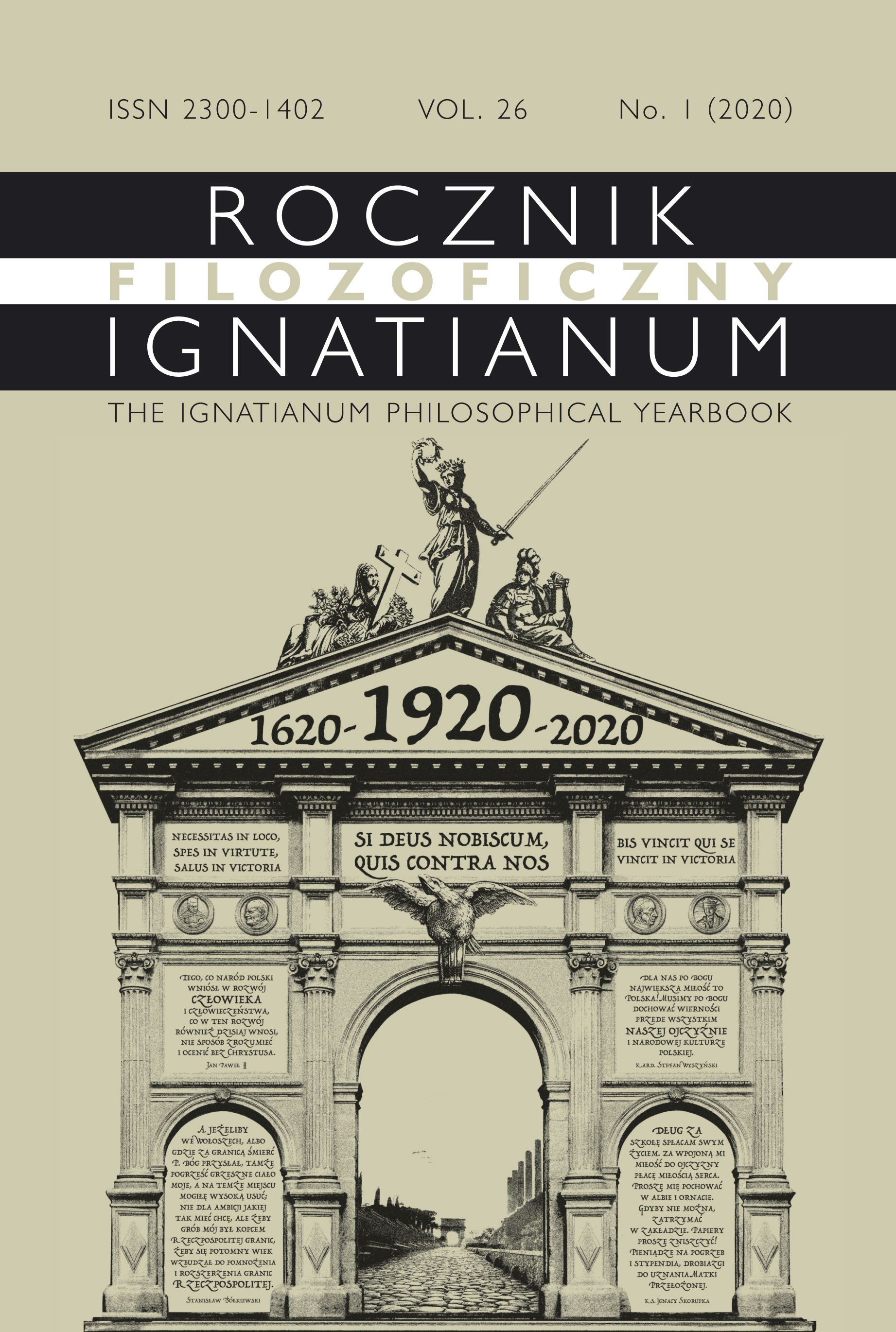The Knightly Ethos – the Defenders of the Homeland in the Tarnowski Family from Dzików
Abstract
The Tarnowski family was one of the most distinguished families in the history of the Polish Commonwealth. The times of their glory date back to the reign of Ladislaus the Short, when their progenitor, Spycimir, became one of the most important figures in the country. At the beginning of the 16th century, after losing their native Tarnów, they established a new family estate in Dzików, where they resided continuously until 1944. The story of the Tarnowski Family from Dzików is also the account of their service to the motherland. The aim of this article is to present this service over the centuries, with a particular emphasis laid on their contribution to the defence of freedom of the Republic of Poland. This service resulted from the knightly ethos which was being kept alive in the family, the model for which was the figure of Hetman Jan Amor Tarnowski. The attitude of the Tarnowski family, both during the 19th century national uprisings, as well as during the wars of 1920 and 1939–45 are the examples of faithfulness to this ethos and to their own past. The article was based on the published literature about the Tarnowski family and the concept of ethos. The latter was only used as a basis for defining the phenomenon. The archives were also consulted, with a particular stress on the family resources, as they show the most fully and precisely (through their subjectivity) the attitude of the subsequent generations of Tarnowski towards their great ancestor. By means of critical analysis of these sources and the available literature, the author put forward the thesis that the peculiar “cult” of Hetman Jan Tarnowski, cultivated by successive family representatives, was an imperative for subsequent generations of the Tarnowski family to maintain their patriotic attitudes. An important conclusion that emerges from this article is that it shows once again how important the knightly ethos, the faith and other imponderables are in the lives of individuals and communities.
References
Archiwum Narodowe w Krakowie, Archiwum Dzikowskie Tarnowskich, sygn. 577 i 648.
Tarnowski Adam, „Kronika rodu Tarnowskich”, rękopis w zbiorach Muzeum Historycznego Miasta Tarnobrzega.
Dworzaczek Włodzimierz, Hetman Jan Tarnowski. Z dziejów możnowładztwa małopolskiego (Warszawa: Wydawnictwo PAX, 1985).
Dworzaczek Włodzimierz, Leliwici Tarnowscy, od schyłku XVI w. do czasów współczesnych (Tarnobrzeg: Muzeum Historyczne Miasta Tarnobrzega, 1996).
Juros Helmut (red.), Słownik teologiczny (Katowice: Księgarnia św. Jacka, 1985). Konopczyński Władysław, Konfederacja Barska (Warszawa: Pałac Staszica, 1936), t. 1 i t. 2.
Leliwici Tarnowscy. Listy Artura Tarnowskiego do Włodzimierza Dworzaczka, oprac. Tadeusz Zych, (Tarnobrzeg: Muzeum Historyczne Miasta Tarnobrzega, 2018).
Lubczyński Mariusz, hasło: Jan Amor Tarnowski, PSB, t. 52, (Warszawa–Kraków–Wrocław: Instytut Historii PAN, 2017–2019).
Maczek Stanisław, Od podwody do czołga (Lublin–Londyn: Towarzystwo Naukowe KUL, 1990).
Ossowska Maria, Ethos rycerski i jego odmiany (Warszawa: PWN, 1986).
Piwowarczyk Dariusz, Obyczaj rycerski w Polsce późnośredniowiecznej (XIV–XV wiek) (Warszawa: Wydawnictwo DiG, 1998).
Siemieński Lucjan, Dwaj Juliusze, red. Aleksandra Janas i Adam Wójcik (Tarnobrzeg: Muzeum Historyczne Miasta Tarnobrzega, 1994).
Stanisław Tarnowski 1837–1917, red. Tadeusz Zych, (Tarnobrzeg: Muzeum Historyczne Miasta Tarnobrzega, 2017).
Tarnowski Stanisław., „Notatki z życia Juliusza Tarnowskiego”, w Dwaj Juliusze, red. Aleksandra Janas i Adam Wójcik (Tarnobrzeg: Muzeum Historyczne Miasta Tarnobrzega, 1994).
Zych Tadeusz, hasło: Artur Tarnowski, PSB, t. 52, (Warszawa–Kraków–Wrocław: Instytut Historii PAN, 2017–2019).
Zych Tadeusz, „Dziedzictwo przodków”, Tarnobrzeskie Zeszyty Historyczne 43 (2015): 50–55.
Zych Tadeusz, „Ochotnicy Dzikowscy roku 1920”, Biuletyn IPN 7–8 (2020): 54–61.
Zych Tadeusz, Z pomocą polskim uchodźcom w okupowanej Jugosławii. Raport Marii Potockiej z Tarnowskich „Dzikoviana”, t. II, (Tarnobrzeg: Rocznik Muzeum Historycznego Miasta Tarnobrzega, 2016).
Maczek Stanisław, „Wspomnienie o śp. Janie Tarnowskim”, Dziennik Polski i Dziennik Żołnierza 126 (1966).
Zych Tadeusz, „Dziedzictwo przodków”, Tarnobrzeskie Zeszyty Historyczne 43 (2015): 50–55.
Zych Tadeusz, „Ochotnicy Dzikowscy roku 1920”, Biuletyn IPN 7–8 (2020): 54–61.
Copyright (c) 2021 Akademia Ignatianum w Krakowie

This work is licensed under a Creative Commons Attribution 4.0 International License.
The Yearbook only accepts materials for publication that are free of all conflicts of interest, and that in no way involve conflicts over authorship, copyright, etc. The Editors will take action against any cases of plagiarizing, ghostwriting1, guest/honorary authorship2, etc. Where co-authored work is concerned, the Author listed first is expected to take responsibility for the submission, and is required to make clear the contributions of all of the Co-Authors involved. In the event of the publication owing its existence to funding dedicated to this purpose, this fact should be made clear: e.g. in any note of thanks/acknowledgement, or in a footnote, etc. Explicit notification should be given of any form of reprinting, with the appropriate evidence of permission to publish being furnished as required. Any impropriety on the part of Authors/Reviewers risks exposing them to appropriate responses from the relevant institutions.
______
1 This term refers to instances of a person who has made an essential contribution being omitted from the list of authors, or from notes conveying gratitude and/or acknowledgement.
2 This occurs when a person who has made either an insignificant contribution or no contribution at all nevertheless appears on the list of authors.





